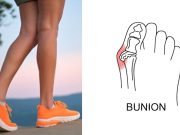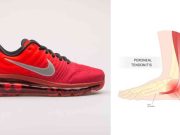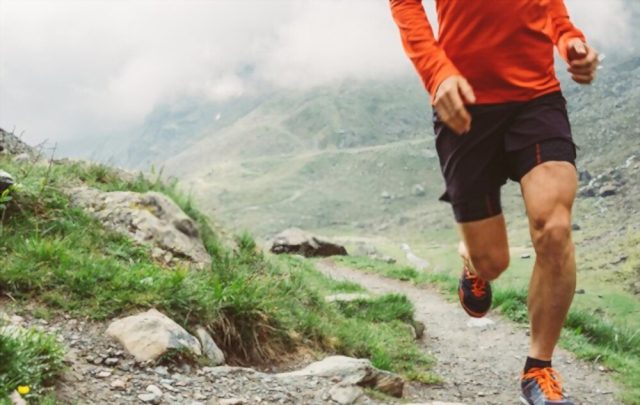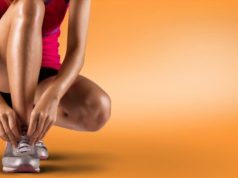Running shoes are essential for trail running. Most people who trail run wear trail running shoes. But if you’re new to trail running or road running in general, choosing the right shoe can be overwhelming.
Table of Contents
What are trail running shoes? :
Trail running shoes are designed for long-distance trail running. They’re lightweight, flexible, and designed to provide a comfortable and stable run on varied surfaces. Trail running shoes typically feature a soft, flexible sole to reduce impact and fatigue.
These soles are thinner and more flexible than shoe treads, which absorb the shock of each step. They’re also made of softer materials like rubber or synthetic mesh, which have a reduced risk of developing blisters or injuries due to hard edges.
In addition to thin soles, trail running shoes may feature extra cushioning to provide added comfort during long runs. They may come with a water-resistant finish and breathable mesh uppers to keep feet dry and comfortable.
Trail running shoes are available in men’s and women’s sizes in a variety of colors and styles. Popular trail running shoe brands include Saucony, Mizuno, Hoka One One, Altra, Garmin, Nike, Brooks Running, Salomon, Asics, New Balance, and On The Run.
Why Trail Running?
– Trail running is a great way to increase your heart rate and burn calories.
– Trail running is a great way to get fit and be able to do more things outdoors.
– trail running is a great way to get in shape and have fun.
– Trail running shoes are durable and lightweight, making them comfortable for long runs. They provide traction on trails, so you won’t slip or fall as easily.
– trail running shoes also come in various styles and designs, making them a statement while still being functional for your trail runs.
What to Look for in a Trail Running Shoe?
Durability: trail running shoes must be durable and withstand a lot of wear and tear. Look for shoes with sturdy construction, such as mesh or synthetic uppers, durable outsole, and heel clips.
Support: trail running shoes should provide good support, so your feet are in the right position while you run. Look for shoes with mid- or high-cushioning to provide additional cushioning or shoes with lightweight designs to reduce weight.
Fit: The fit of trail running shoes is important because it needs to be snug but not too tight. Consider factors such as the shape of your foot and the shoe’s ankle opening. Also, consider the shoe’s heel height, toe box size, and arch support.
Protection: trail running shoes should provide adequate protection against rocks and other debris on the ground. Look for shoes designed for running on uneven terrains, such as trail runners and hiking boots.
Breathability: Make sure the shoes you choose are moisture-wicking and allow your feet to breathe well. A good pair of trail running shoes would have material across the top that allows air to pass through easily and material on the sole of the shoe that allows water to pass through easily.
How We Tested These Trail Shoes?
We tested each trail running shoe on pavement, dirt, and grass surfaces for our trail shoe evaluation. We evaluated how well each shoe performed on various trails with varying inclines and gradients. We also evaluated how well each shoe cushioned runners’ feet during long runs.
In addition to testing the shoes’ performance on the trail, we assessed how comfortable each trail running shoe was to wear for extended periods.
We considered factors such as the shoe’s design, color scheme, and material composition for rating the shoes’ aesthetics and price. Overall, we found that trail running shoes are designed to be lightweight and durable for use on trails or other- terrain. They can be used for road running or as an alternative to trail shoes in colder months.
Types of Trail Running Shoes :
You may wonder what type of trail running shoes are out there and how to choose the best one. There are 3 types of trail running shoes: road, cross-country, and trail running. Each type of shoe has unique features that make it better for different types of running.
01: Barefoot & Minimalist
Trail running shoes are designed to provide a more natural experience when running on the trail. Barefoot and minimalist shoes lack traditional shoe features, such as padding and arch support, and are designed to conform to the shape of your foot. They are perfect for those who want to explore the outdoors without wearing restrictive footwear. Barefoot trail running is a great way to connect with nature and improve cardiovascular fitness.
02: Zero Drop
Zero-drop shoes feature a heel lower than the toe, which minimizes your foot’s impact when running. This design allows you to run faster and further without feeling the pain and fatigue that comes with jarring footsteps. Additionally, trail runners with zero-drop shoes can easily move in and out of water crossings and other wet areas. These shoes are ideal for running on varied terrain, from pavement to trails. They provide cushioning and stability while running, making them an exciting option for trail runners of all skill levels.
03: Light Trail Runners
Light trail running shoes are designed for short, easy runs on flat terrain. They typically have a thin and lightweight construction that makes them comfortable to wear.
Some lightweight trail running shoes also have a heel-to-toe drop, making them more efficient at covering long distances. Light trail shoes can also be converted into running shoes if you need more support or protection. For longer runs or races, you’d wear lightweight running shoes inside a heavier pair.
These shoes are best for those who don’t run regularly and want to start but don’t want to make a major investment in running shoes immediately.
04: Rugged Trail Runners
Trail running shoes are designed to provide trail runners with a comfortable and supportive surface. These shoes typically have a synthetic upper resistant to debris and mud. They typically have a hard-toe box that supports the runner’s midfoot and heel. But cushioning and support also come from the soft, flexible liner. Trail running shoes come in different widths and heights to accommodate various foot sizes. They may also have rubber soles to provide traction on wet or icy surfaces.
Trail running shoes are lightweight, durable, and designed to support trail running safely and efficiently. They provide the best possible performance while running on trails.
05: Maximalist
Maximalist trail running shoes are designed to provide maximum support to the runner as they run. They typically have a higher stack height than other running shoes, which allows for more cushioning and support.
These shoes also come with a wider toe box that allows more room to spread your toes as you run. These shoes are ideal for runners who want more stability and traction.
These shoes are typically best for runners who want to spend more time on the ground during their run. They are often best for running long distances or going uphill, where support is essential.
Our Latest Article:
01: Best running shoes for heavy men
02: Best Running Shoes For Fat Guys
Frequently Asked Questions
Does trail running work?
Yes, trail running can be a very effective way to improve your fitness. Proper trail running shoe selection is key, as the shoe should have a sturdy construction and good grip to help you stay on the trail. Training regularly will help you reach your fitness goals faster.
What is the best trail running shoe?
There is no “best” trail running shoe. What matters most is the shoe you feel best in, which varies from runner to runner. That being said, here are some key features to look for in a good trail running shoe:
01: A good grip: A good grip helps you stay on your feet while running, preventing injury.
02: Lightweight: Trail running shoes should be lightweight so that you don’t suffer from fatigue during your runs.
03: Durability: You should look for trail running shoes that have good durability, so they last longer and don’t wear out quickly.
04: Water resistance: trail running shoes should be resistant to water so that you don’t have to stop and take off your shoes every time it rains.
Conclusion
Trail running shoes are lightweight and durable running shoes designed with the trail runner in mind. Their minimalist shoes offer cushioning, traction, and other features to cushion trail running surfaces.
They’re lightweight and durable enough for trail running but flexible enough for road running. It’s best to choose a trail running shoe that fits your foot type and preferences to get the most out of them! To learn more about trail running shoes, visit our blog here.
































